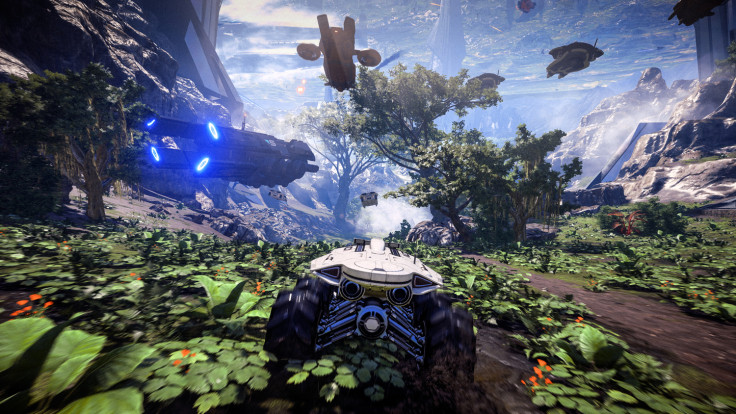Mass Effect Andromeda was once a 'giant procedural game' reveals BioWare
BioWare lead designer Ian Frazier speaks to IBTimes UK about an early version of the sci-fi RPG.
Mass Effect Andromeda's lead designer Ian Frazier has revealed to IBTimes UK that early on in development of the sci-fi RPG sequel, the development team at BioWare were working on a "giant procedural game".
According to Frazier, BioWare built on procedural tools to aid in the creation of huge planets for the player to explore, but ended up going for a more authored, driven approach after encountering problems.
As part of IBTimes UK's larger interview with Frazier and other members of the Mass Effect team, we asked whether there were any features from early on in development that were dropped.
"On the gameplay front I'll tell you we explored some very different designs early on," said Frazier. "As you know in the game you're the Pathfinder, and you've been tasked with finding these worlds to colonise and/or make peace with the natives. Originally we leaned much more heavily into that.
"We were looking at a game that used a lot more procedural tools to have a vast swathe of planets and places to go. We spent a lot of time developing down that road, and tailoring the story towards it and so forth, and we quickly found it wasn't yielding the results we wanted.
"You can make a giant procedural game, but we were finding that the giant procedural game wasn't the narrative experience or the moment-to-moment experience we wanted players to have."
Andromeda sees thousands of the Milky Way's inhabitants – humans, turians, asari, krogan, salarians – journey to the titular galaxy, far beyond the reach of our own. Upon their arrival they encounter a few problems, to put it lightly, and it's up to the player as Sara or Scott Ryder to save the day.
This involves exploring the "golden worlds" once thought to be potential new home worlds, which are found to be inhospitable upon arrival, and interacting with the natives: the angara and the far less friendly Kett.
This set-up fits with the game Frazier says was originally planned, and it hasn't changed a whole lot since. "Through a couple of iterations we tightened that up into the story and game as you see it now," he explains. "We still use procedural tools here and there, but by and large when you play the game, when you explore Eledin or Eos, those are handbuilt planets. So aside from specific story changes, that's the biggest change – that shift to quality over quantity."

Frazier also reveals that the procedural tech may be something the team one day returns to. "Oh it's possible," he said. "We explored it on several fronts. 'Procedural' is a buzzword that gets thrown around a lot these days, as if there's one magical procedural tool that does it all. But we had some stuff we looked at for how terrains were generated, or how we placed content on planets. And a little bit of that actually survived and made it into the final game, even though we weren't using it for the same reason anymore.
"So when you're driving the Nomad around on the surface, some of the smaller scale conflicts you'll find are using a system we built called 'Storyteller,' which is procedural. It's a game director of sorts that's asking 'how long is it since this player has had a fight? How long is it since they've talked to somebody?' and shifting around the odds of certain micro-events spawning based on that."
Mass Effect Andromeda was released in late March to positive reviews. While it did score more poorly than the original trilogy of Xbox 360 and PS3, it was still an enjoyable game. You can read IBTimes UK's review here.
For all the latest video game news follow us on Twitter @IBTGamesUK.
© Copyright IBTimes 2024. All rights reserved.







